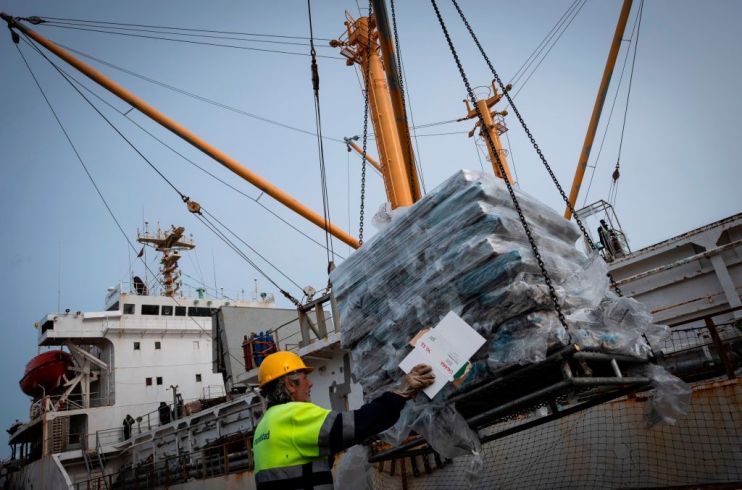‘Serious concerns’ raised over government’s export credit agency

The government’s export credit agency could be “cutting corners” as it races to finance the post-coronavirus and post-Brexit trade drive, raising “serious concerns” about the UK’s future trading relations, according to a new report.
A report released today by anti-corruption campaign group Spotlight on Corruption found that UK Export Finance (UKEF), the UK’s export credit agency, is supporting sectors prone to corruption as part of its post-Brexit export drive.
The agency, which works alongside the Department for International Trade, provides support for small and medium-sized enterprises that need loans, insurance policies or bank guarantees for export activities.
According to its most recent accounts, UKEF gave support worth £4.4bn to 339 companies over the past year. The direct loan facility received a boost from Rishi Sunak in his March Budget, when the chancellor increased its funding by £5bn to £8bn.
However, Spotlight on Corruption has voiced concerns that the budget hike has not been matched by a tightening of anti-corruption measures.
More than half of UKEF’s priority markets rank in the bottom 50 per cent of corruption indices, including infrastructure and defence in countries that are at a high risk for corruption, the report found.
Spotlight on Corruption expressed particular concern over the fact that UKEF is increasingly supporting newly established UK-registered subsidiaries of foreign construction firms that have been embroiled in corruption allegations.
Research by the organisation highlighted UKEF’s recent support for subsidiaries of Spanish companies that have been under investigation in Spain for corruption. In 2018, UKEF handed £68m to the Glasgow-based subsidiary of Spanish infrastructure firm Elecnor, which two years earlier had been charged over its payment of almost €3m (£2.71m) in bribes to secure an Algerian tramway project.
Campaigners also raised the flag over UKEF’s direct loan worth £190m to a project in Uganda alleged to have strong political connections to the brother of the Ugandan President Yoweri Musveni.
An investigation by the Ugandan government following corruption allegations found the company to have operated “dramatic wheeling and dealing, insider trading and outright fraud”, resulting in the loss of $2.6bn (£2.1bn) and the prosecution of 90 officials.
“These cases raise serious concerns that UKEF could be cutting corners as it races to finance the post-coronavirus and post-Brexit trade drive,” the Spotlight on Corruption report said.
UKEF has said that it is an “emerging trend” for overseas companies to set up UK subsidiaries, and that its support for such companies helps create new market opportunities for UK supply chain contractors.
The report also accused UKEF of being “too slow to report allegations and suspicions” of corruption, after it took UKEF 13 months to raise the flag with the UK’s Serious Fraud Office over dodgy Airbus payments, for which the aerospace engineer was fined €3.6bn in corruption charges.
Campaigners urged the credit agency to implement “speedier referrals of suspicious activity to law enforcement and much greater use of its audit powers to ensure that its anti-bribery warranties are being observed”. It also called on the government to significantly increase transparency about how UKEF handles corruption risk and to bolster its anti-corruption defences.
“As UKEF takes on increased corruption risk, there appears to be inadequate transparency about what procedures it has in place to address this risk. UKEF meanwhile has consistently refused to release meaningful information about the number of referrals it makes to law enforcement about suspicions of corruption,” the report said.
“UKEF has made significant strides in fighting corruption in recent years, but there is a real risk that the pressure to support exports post-Brexit and post-coronavirus at any cost could undermine these efforts.”
“This would seriously undermine UKEF’s leadership role among government export credit agencies and undermine the UK’s reputation as a country that does business fairly and cleanly.”
A spokesperson for UKEF told City A.M: “UKEF’s mission is to ensure that no viable UK export fails for lack of finance or insurance from the private sector.
“It undertakes rigorous due diligence including checks against financial crime, bribery and corruption, prior to any support being provided.”
Before the Open: Get the jump on the markets with our early morning newsletter